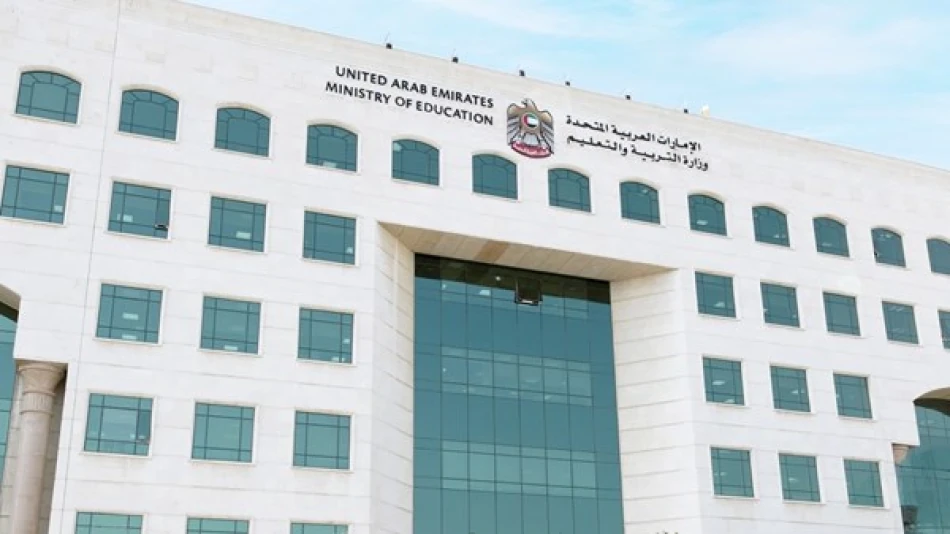
Ministry Unveils Revamped School Calendar Structure for Enhanced Educational Outcomes
UAE Overhauls School Calendar Structure in Major Education Reform for 2025-2026
The United Arab Emirates has announced a comprehensive restructuring of its academic calendar system, set to take effect from the 2025-2026 school year. The reform, approved by the Council for Education, Human Development and Community, represents the latest phase in the UAE's ambitious education transformation strategy as the nation positions itself as a regional knowledge economy hub.
Strategic Timing Aligns with Vision 2071
The Ministry of Education's announcement comes at a critical juncture as the UAE accelerates its human capital development initiatives. This calendar restructuring follows a pattern of systematic education reforms that began with the introduction of the Emirates School Establishment in 2016 and the subsequent shift toward outcome-based learning models.
The timing suggests coordination with the UAE's broader Vision 2071 goals, which aim to make the country the world's best nation by its centennial. Education reforms have consistently been prioritized as foundational to achieving this ambitious target, with previous changes including curriculum updates, teacher training programs, and infrastructure investments totaling billions of dirhams.
Regional Competition Drives Innovation
The UAE's move mirrors similar education calendar reforms across the Gulf region, where nations are competing to attract international talent and investment. Saudi Arabia implemented significant academic calendar changes in 2021, moving to a three-semester system that increased instructional time by 13 weeks annually. Qatar has similarly restructured its academic year to better align with international standards and improve student outcomes.
This regional trend reflects a broader recognition that traditional academic structures may not serve the needs of modern economies increasingly dependent on knowledge work and innovation. The UAE's approach appears designed to maintain its competitive edge in attracting expatriate families and international educational institutions.
Economic Implications for Families and Businesses
Calendar restructuring typically creates ripple effects throughout the economy, particularly affecting tourism, retail, and family spending patterns. The UAE's substantial expatriate population—comprising over 80% of residents—means that academic calendar changes influence everything from airline booking patterns to real estate demand cycles.
Previous calendar adjustments in other countries have shown measurable impacts on seasonal business revenues. Singapore's academic calendar optimization in 2019 contributed to more balanced tourism flows throughout the year, reducing peak-season congestion while supporting year-round economic activity.
Implementation Challenges and Opportunities
The 2025-2026 implementation timeline provides educational institutions with adequate preparation time, a lesson learned from rushed reforms in other jurisdictions. However, the success of this restructuring will largely depend on coordination between public schools, private institutions, and international curriculum providers operating within the UAE.
The reform's impact on teacher recruitment and retention deserves particular attention. The UAE has invested heavily in attracting international educators, and calendar changes could affect the country's competitiveness in the global teacher market, especially when competing with traditional summer-break destinations.
Early indicators suggest this restructuring may be designed to better align the UAE's academic year with international university admission cycles and global internship opportunities, potentially enhancing students' access to overseas higher education and career prospects.
Most Viewed News

 Layla Al Mansoori
Layla Al Mansoori






